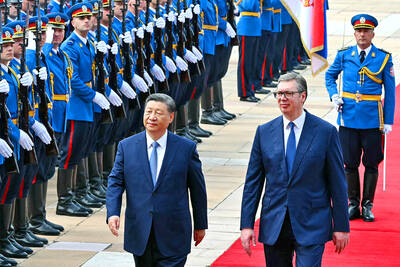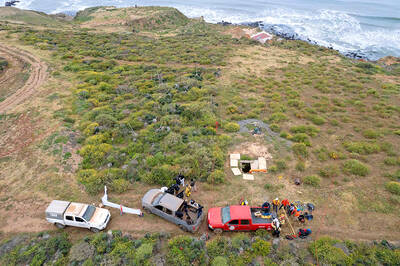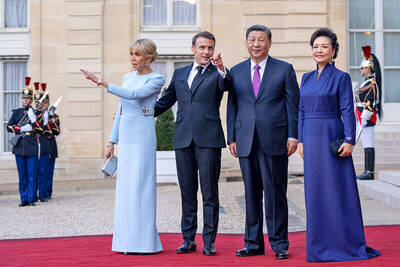In a push to restart international education, Australia plans to recommence granting international student visas and allow current students to count online study while overseas toward a work visa.
The changes, announced by Acting Australian Minister for Immigration, Citizenship, Migrant Services and Multicultural Affairs Alan Tudge yesterday, respond to demands from the university sector to help it attract international students and revive what was Australia’s third-largest export before the COVID-19 recession.
Nevertheless, the concessions are unlikely to alleviate calls for greater support for the sector, which had asked for future students to be able to begin their studies overseas online, an option that has not been approved in this package.
Australian universities face an estimated A$16 billion (US$11.19 billion) black hole due to a massive drop-off in international student numbers, compounded by warnings from China against its citizens coming to Australia to study.
Tudge said that the government would change student visa arrangements to “ensure Australia remains a priority destination for international students as we emerge from the COVID-19 pandemic.”
Under the changes, the government would recommence granting student visas, allowing travel to Australia as soon as borders reopen.
International students would be able to lodge an additional student visa application free of charge, if COVID-19 prevented them from completing their studies under their original visa.
Current student visa holders studying online outside Australia due to COVID-19 would be able to count that study time toward the Australian study requirement for a post-study work visa.
“In making these changes, we have been guided by the principles that the health of Australians is key, but that international students should not be further disadvantaged by COVID-19,” Tudge said.
“We are a welcoming nation with a world-class education system and some of the lowest rates of COVID-19 in the world,” he said. “Students want to study here and we want to welcome them back in a safe and measured way when it is safe to do so.”
Australian Minister of Education Dan Tehan, said that Australia’s “remarkable efforts in controlling the spread of the virus mean we can begin to welcome back international students in a COVID-safe way once state borders reopen and face-to-face learning resumes.”
Although the government has guaranteed its A$18 billion contribution to universities, it has effectively excluded them from wage subsidies, contributing to big job cuts at institutions including Monash University and the University of New South Wales.

MONEY MATTERS: Xi was to highlight projects such as a new high-speed railway between Belgrade and Budapest, as Serbia is entirely open to Chinese trade and investment Serbian President Aleksandar Vucic yesterday said that “Taiwan is China” as he made a speech welcoming Chinese President Xi Jinping (習近平) to Belgrade, state broadcaster Radio Television of Serbia (RTS) said. “We have a clear and simple position regarding Chinese territorial integrity,” he told a crowd outside the government offices while Xi applauded him. “Yes, Taiwan is China.” Xi landed in Belgrade on Tuesday night on the second leg of his European tour, and was greeted by Vucic and most government ministers. Xi had just completed a two-day trip to France, where he held talks with French President Emmanuel Macron as the

With the midday sun blazing, an experimental orange and white F-16 fighter jet launched with a familiar roar that is a hallmark of US airpower, but the aerial combat that followed was unlike any other: This F-16 was controlled by artificial intelligence (AI), not a human pilot, and riding in the front seat was US Secretary of the Air Force Frank Kendall. AI marks one of the biggest advances in military aviation since the introduction of stealth in the early 1990s, and the US Air Force has aggressively leaned in. Even though the technology is not fully developed, the service is planning

INTERNATIONAL PROBE: Australian and US authorities were helping coordinate the investigation of the case, which follows the 2015 murder of Australian surfers in Mexico Three bodies were found in Mexico’s Baja California state, the FBI said on Friday, days after two Australians and an American went missing during a surfing trip in an area hit by cartel violence. Authorities used a pulley system to hoist what appeared to be lifeless bodies covered in mud from a shaft on a cliff high above the Pacific. “We confirm there were three individuals found deceased in Santo Tomas, Baja California,” a statement from the FBI’s office in San Diego, California, said without providing the identities of the victims. Australian brothers Jake and Callum Robinson and their American friend Jack Carter

CUSTOMS DUTIES: France’s cognac industry was closely watching the talks, fearing that an anti-dumping investigation opened by China is retaliation for trade tensions French President Emmanuel Macron yesterday hosted Chinese President Xi Jinping (習近平) at one of his beloved childhood haunts in the Pyrenees, seeking to press a message to Beijing not to support Russia’s war against Ukraine and to accept fairer trade. The first day of Xi’s state visit to France, his first to Europe since 2019, saw respectful, but sometimes robust exchanges between the two men during a succession of talks on Monday. Macron, joined initially by EU Commission President Ursula von der Leyen, urged Xi not to allow the export of any technology that could be used by Russia in its invasion